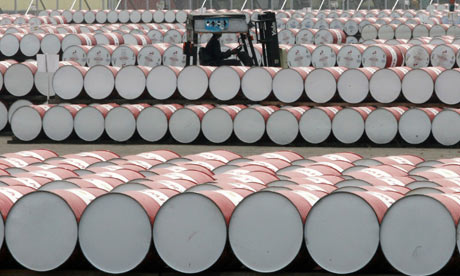Egypt’s non-oil private sector contracted in June at its slowest pace since the start of the novel coronavirus (COVID-19) outbreak, according to an IHS Markit Purchasing Managers’ Index (PMI) report.
Despite the slowdown in contraction, the country’s PMI reading for June increased 9.5%, to record 44.6 points, up from 40.7 points in May, indicating that a sharp decline remains in place. The June figures also remain far below the 50.0 threshold that separates growth from contraction.
The June reading signals a sharp decline in business conditions, but the highest seen in four months since the start of the global pandemic in March. The figure compares with 40.7 in May and a nadir of 29.7 in April, at the height of the coronavirus pandemic.
“In line with the headline figure, sub-indices for output and new orders also rose to four-month highs in June,” IHS Markit reported. “Despite still pointing to marked downturns in activity and demand across Egypt’s non-oil private sector, the rate of contraction softened considerably from the previous month.”
The report continued that many firms were helped by the partial lifting of coronavirus-related restrictions, reporting an increase in working hours and new contracts from clients. That said, activity across much of the sector remained weak, often due to international restrictions on travel and tourism.
Despite the softer downturn, latest data showed that firms were still actively cutting employment in June, with the rate of job-shedding quickening to a near four-year high, according to the report.
Meanwhile, firms reported a softer reduction in purchasing activity in June, as the decline in new business also slowed.
The report added that prices paid for input goods rose sharply, in part due to an increase in prices for medical materials and the rising value of the US dollar. The rate of inflation was the sharpest for nine months, leading to a renewed uptick in overall cost pressures at Egyptian firms.
Despite this, companies continued to lower output charges in June, as part of efforts to attract new customers and improve sales amid the pandemic. However, the latest drop in prices was only modest.
Commenting on the latest survey results, David Owen, Economist at IHS Markit, said: “June’s PMI data gave some promising signs that the Egyptian economy is beginning to stabilise.”
He added, “Employment numbers still fell at an accelerated rate in June, although multiple signals suggest this will soon change. Higher demand at some companies, increased backlogs and sentiment rising to a six-month high all point to firms hopefully restarting hiring in the near future.”
Owen also said that firms sourcing medical equipment and other raw materials saw a sharp uptick in purchase prices in June, which led to a renewed rise in cost burdens across the non-oil private sector. As a result, wages were reduced for the third month in a row.




